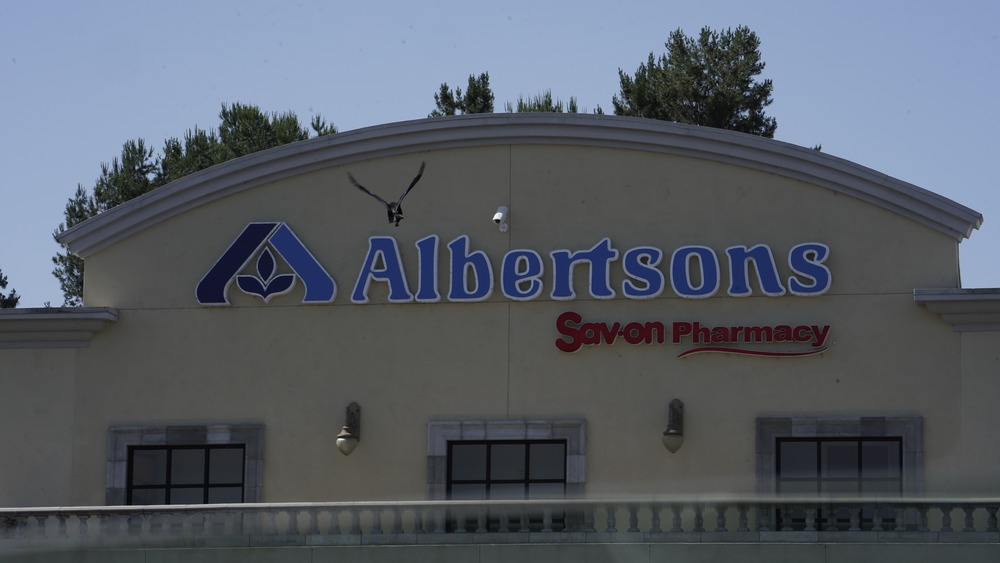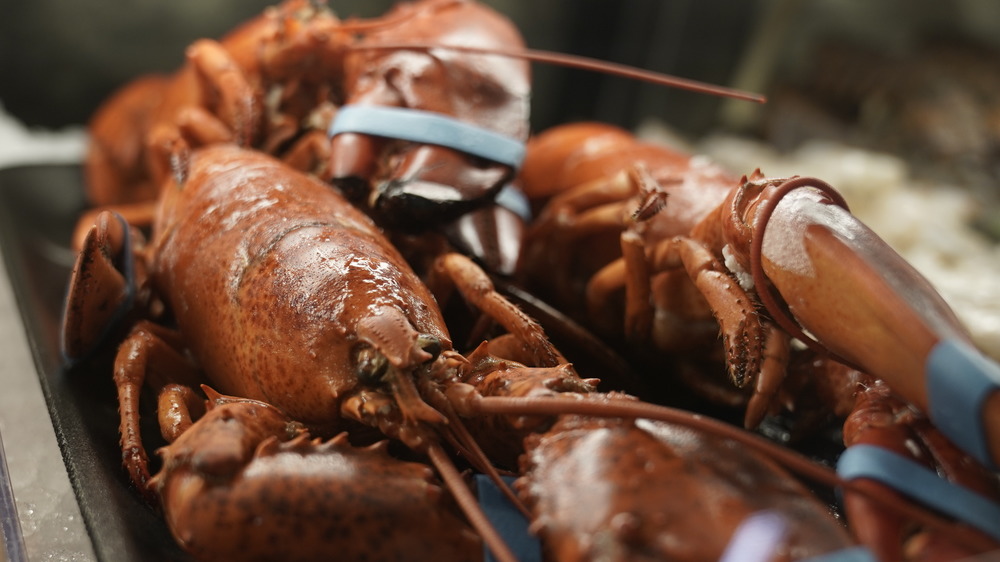What You Need To Know About Albertsons' Seafood
For millions of Americans, roughly 80-year-old Albertsons (per the company website) is their go-to trusted grocery store chain, even if they don't realize it. The company, founded in Boise, Idaho in 1939, now boasts nearly 400 locations in 15 states. But if you count all the other grocery brands owned by Albertsons, including Safeway, Acme, Tom Thumb, Randalls, and more, that number swells to more than 2,200 stores across 35 states, making it the largest privately owned supermarket chain in the country (via Forbes).
While at first glance Albertsons may seem just like all your other standard grocery store chains, there's a lot more to this company that sets it apart from the rest. One of those factors includes the company's dedication to sustainability efforts. The Albertsons website tells us that the company is committed to maintaining "the highest standards of environmental stewardship (including sustainably sourced products)" and offering "products that are better for you and the planet." And the company has worked hard to back up that commitment. According to its Sustainability Highlights report from 2019, Albertsons has won the EPA Safer Choice Partner of the Year Award for the last three years in a row. The company also reported that they recycled more than 800 million pounds of plastic and cardboard, and completed more than 1,400 energy efficiency projects across hundreds of stores and warehouses.
Even more significant though, Albertsons says that it achieved a major sustainability goal in 2020 — one that they hope will have shoppers flocking to the seafood aisle.
Albertsons offers sustainably sourced seafood
In July of 2020, Albertsons announced that all of its company-owned seafood brands, which include Waterfront BISTRO and Open Nature, accounting for more than 100 products, are sustainably sourced to meet the company's "Responsible Seafood Policy," which is to provide "high-quality, sustainable, and traceable seafood from environmentally and socially responsible sources." Albertsons actually reached their goal a few years ahead of its 2022 deadline (via Supermarket News).
So what is sustainably sourced seafood? The designation means that the harvesting methods used by commercial fishing companies take environmental and ethical factors into account. Sustainability site Green Matters puts it even more simply: "Basically, 'sustainable seafood' means the fishery claims to be making efforts to kill fish in a manner and rate that our oceans can maintain." And this is good for consumers, as The Waterfront Restaurant points out, because it works to ensure that we will have access to plentiful, high-quality fish for generations to come.
So next time you hit up Albertsons or one of its stores, be sure to stock up on shrimp, salmon, and any other seafood your heart desires. You'll be doing yourself and the planet a favor.

